It has been ten years since Edgecombe County Animal Services had to euthanize any dogs for reasons other than extreme behavioral or medical. That changed last year.
In 2022, the shelter took in 551 dogs and euthanized 119. That’s over 20%.
On the day we visited in spring of 2023, the weight of those deaths clearly weighed on Amy as she answered our questions, and explained that just that morning, they’d had to euthanize five dogs. Amy handles all the care of the dogs—intake, vaccinating, deworming, heartworm testing, daily care, documenting, and networking them to rescue.
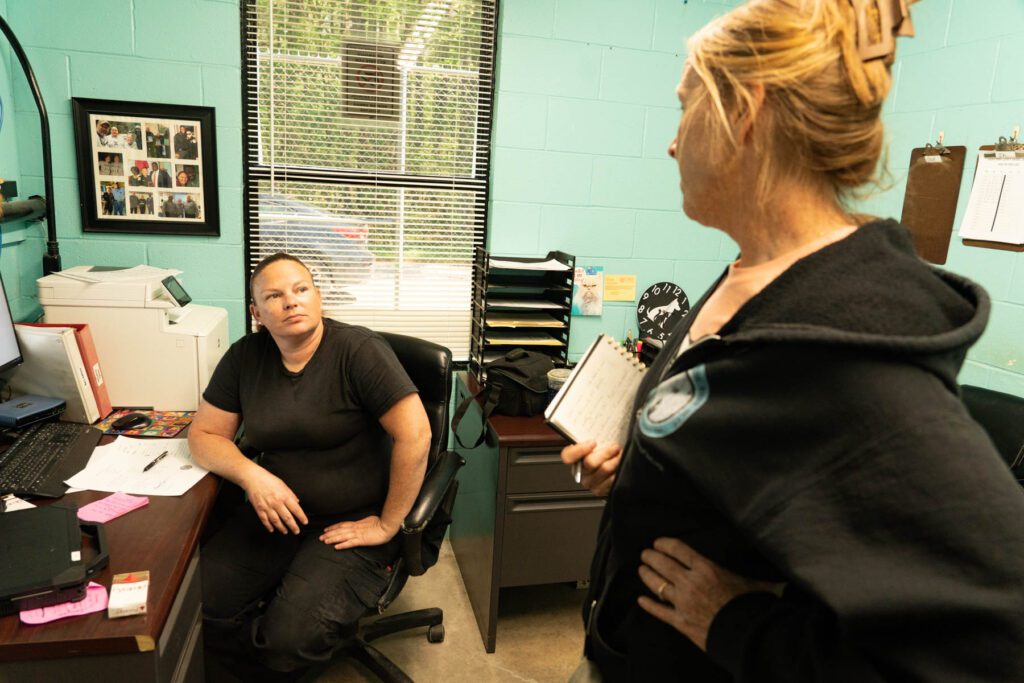
When we arrived, she was working hard to get pictures uploaded to network three six-month-old puppies who had recently come in. One tested positive for heartworm. The shelter does not have the funds or means to treat heartworm and the community is not a wealthy one, so they try to send heartworm positive animals to rescues.
Both Kathy, the volunteer who asked us to come for a visit, and Amy, the ACO who cares for the dogs, have been at the shelter about ten years.
Kathy began volunteering ten years ago and back then, she explained, she didn’t go past the office. She couldn’t bear to see the dogs who were likely to be euthanized. Things have changed since then and she is at the shelter most afternoons and does pretty much everything.
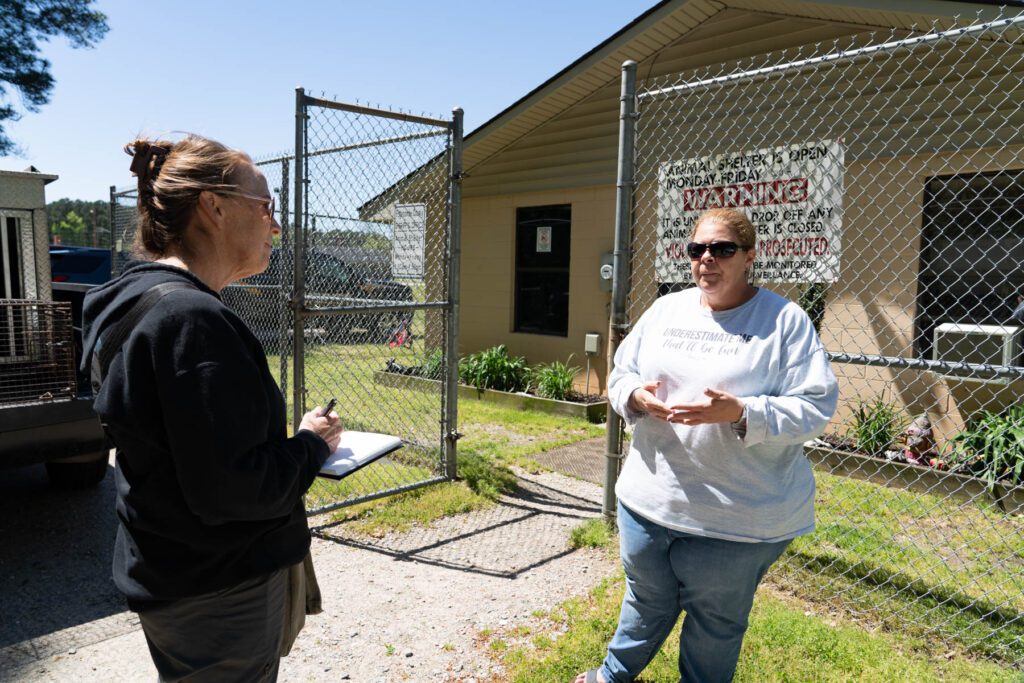

Kathy also chairs the Animal Welfare Council, comprised of a veterinarian, an Animal Control Officer, a person from the county’s Ag department, and three members of the community. They have worked together to expand and improve the county ordinances regarding animals. They instated a mandatory spay/neuter law that requires every pet adopted from the shelter to be spayed and neutered. Adopters pay for that service as part of their adoption fee and if they don’t show up for their veterinary appointment, the county can (and has) reclaimed their animal.
The shelter falls under the sheriff’s department in the county, and there are three ACOs. Eugene is one of the ACOs who handles the calls. He’s been at the shelter for 18 years. He’s seen a lot of change in those years, mostly for the better. He hopes that this will be the year they finally get a new shelter building.
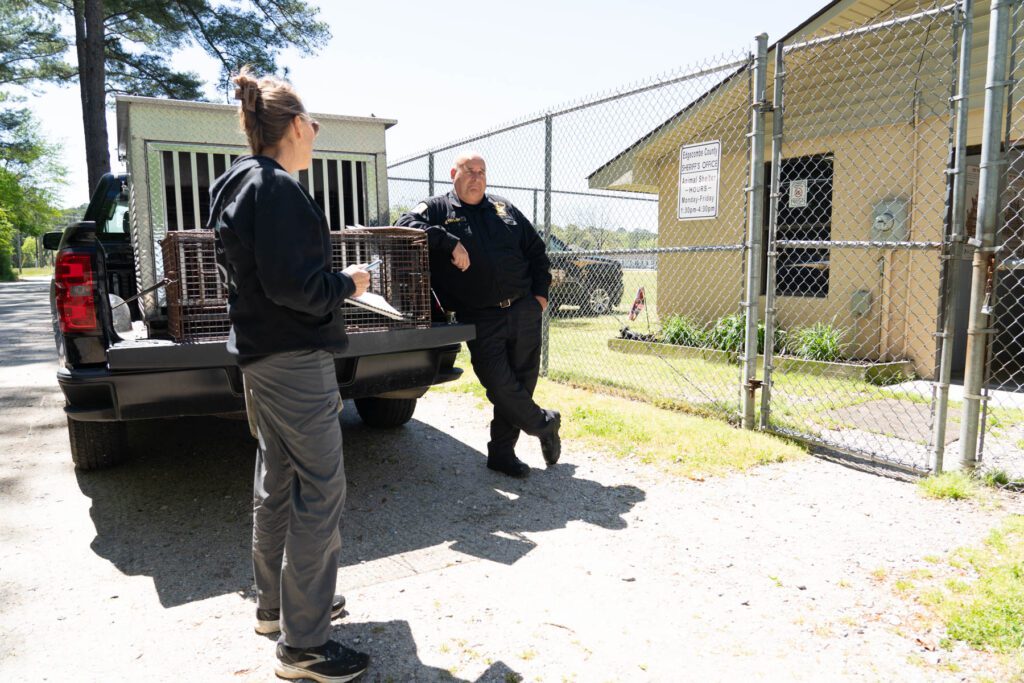

The current building is a typical dog pound style cement bunker, surrounded by a chain-link fence. There are several window air-conditioners and fans with filters attached to improve the air above the 20 kennels. All of the dogs had Kuranda beds thanks to a gift from Animal Rescue Aid.
The shelter is blessed to have an excellent, rescue-friendly vet in Williamston Vet. The office is about 30 minutes away and handles their surgeries and emergencies, giving them significantly reduced rates and top-notch care.
Eugene and Amy are certified to give rabies, and they hold a rabies clinic for the public four times a year. Strange fact I learned – ACOs are only allowed to give a one-year rabies vaccine in North Carolina. For a three-year rabies vaccine, a veterinarian has to perform what is essentially the same shot.
The shelter is only open to the public Monday through Friday from 1:30-4:30. Those hours make it challenging to find volunteers, and according to the staff, the ones that do step up never last long.
Here is what stood out to me at this shelter: The small staff (and one volunteer) are working hard, but their hearts are weary. They’ve been shouldering a heavy load for the last ten years, but the strain of weathering the current crisis created by the pandemic, economy, and veterinary shortage (and other factors) is proving difficult.
They could use a break. And more support.
I asked Eugene what he thought might make things better and he said, “a new building.” One with 50 kennels so there is more room to hold more dogs, giving them more time. Maybe he’ll get one. But a bigger building will likely translate to more animals and more challenges that will require more staff, volunteers, and community help. Edgecombe is struggling to save the dogs they have. A better location will certainly help (they are on a small piece of property behind several abandoned public buildings (including a hospital), but increased hours, more public involvement, and a commitment not to euthanize for space would bring bigger change.
Amy’s answer to the same question is still haunting me. She said, “Being able to say ‘no’.”
As an open-intake shelter, she can’t say no when someone shows up and wants to dump their animal for any reason. Kathy explained that if they’re full (which they often are), sometimes they can convince the person to hold on to the animal a little longer, telling them that if they take the animal the person is trying to surrender, they’ll have to kill another.














That death will fall on the heart of Amy who is doing all she can to avoid it. She relies on rescue help, as like so many other places in the rural south, quality adopters aren’t always easy to come by. These days, rescue help is also hard to come by as rescues all over the country are swamped and pulling fewer and fewer dogs.
I’m not sure either answer will bring the change they really need in Edgecombe County. But as we drove away, I wrestled with how we could help.
We can tell this story and hope that people who live in this county will step up and help. We can continue to support them with our message, our grants and resource assistance, maybe even one of our Instagrants.
We can encourage them to consider ideas that have proved successful in other places like expanded hours for the shelter so that the public can become more involved (volunteering AND adopting), or microchipping every animal they take in (currently they don’t microchip). A washer and dryer would give them the ability to give the dogs (and cats) bedding.
The current building is surrounded by vacant properties – perhaps they could use some of that property to put in a walking trail and/or a dog park. Or use a portion of the space to invite a dog trainer to come and offer classes. They could recruit volunteers to take over jobs like uploading pictures/information to their shelter software, or providing enrichment for the dogs, cleaning kennels, walking dogs, playing with cats.
Right now so much is falling on too few shoulders and too few hearts, but those hearts and those shoulders will only hold out so long.
We left supplies to put together peanut butter boards, plus Kongs (and kong stuffing treats thanks to donations from the Kong Cares program), plus dewormers, canned dog food, treats, flea/tick treatments, martingale collars (donated by Max & Neo), and busy bones.
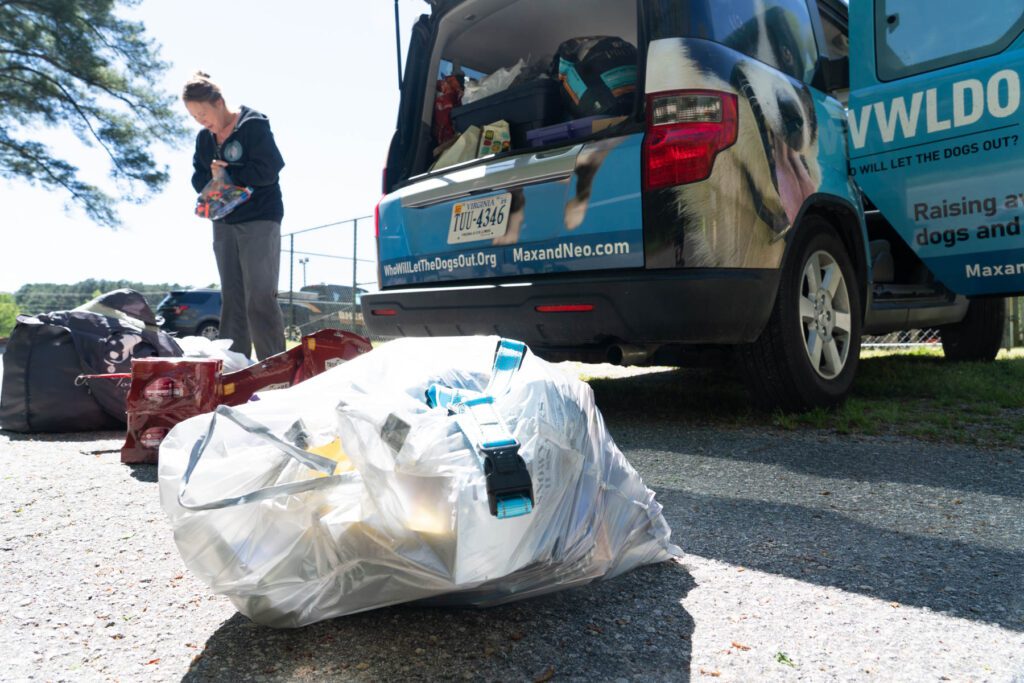

It’s all we can do for now, but we will keep shining a light on the efforts at Edgecombe and keep looking for solutions for them and for all the shelters we visit.
You can help by sharing this post with people/organizations in the area. And if you’ve got a few bucks to spare, you can shop their Amazon wishlist: https://www.amazon.com/hz/wishlist/ls/102U7KM83K1JF/
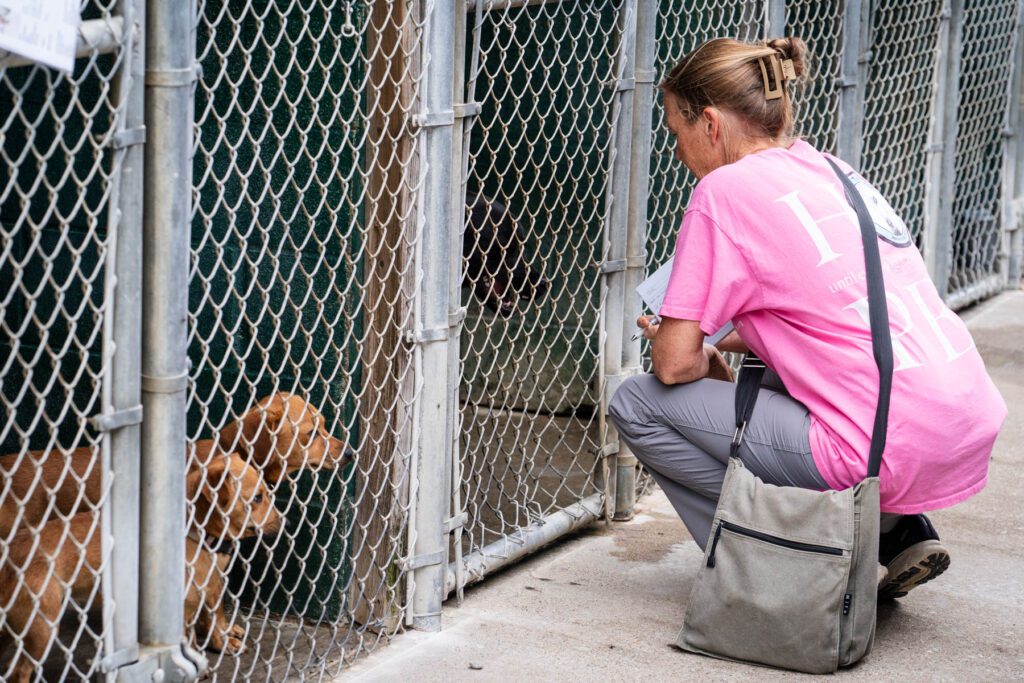

Until each one has a home,
Cara
If you want to learn more, be sure to subscribe to this blog. And help us spread the word by sharing this post with others. Visit our website to learn more.
You can also help raise awareness by following/commenting/sharing us on Facebook, Instagram, YouTube, Tik Tok, and the Who Will Let the Dogs Out podcast.


Learn more about what is happening in our southern shelters and rescues in the book, One Hundred Dogs & Counting: One Woman, Ten Thousand Miles, and a Journey Into the Heart of Shelters and Rescues (Pegasus Books, 2020). It’s the story of a challenging foster dog who inspired me to travel south to find out where all the dogs were coming from. It tells the story of how Who Will Let the Dogs Out began. Find it anywhere books are sold. A portion of the proceeds of every book sold go to help unwanted animals in the south.
For more information on any of our projects, to talk about rescue in your neck of the woods, or become a WWLDO volunteer, please email whowillletthedogsout@gmail.com or carasueachterberg@gmail.com.
And for links to everything WWLDO check out our Linktree.



Leave a Comment
Sign up for our newsletter
Sign up to have our latest news, grant updates, shelter visits, and more delivered to your inbox.
Share this:
Like this: